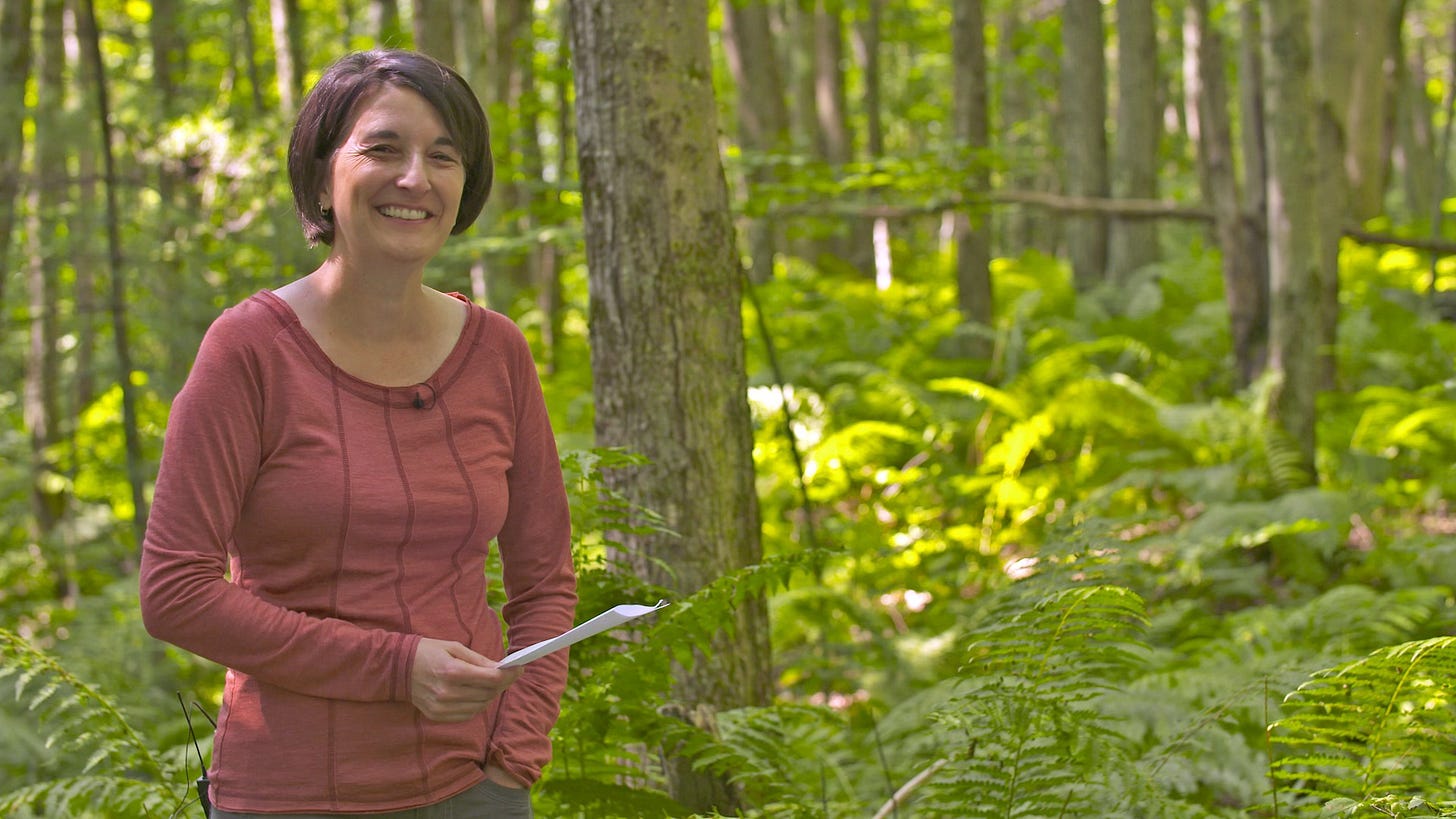Review: Anthony Domestico, Poetry on TV
How to convince people who think they don’t like poetry that there might be something in it for them?
Environmental scientist Serita Frey talks about the microbial structure of mushrooms for a discussion of “Mushrooms” by Sylvia Plath and “Mushrooms, Weakness, and Doubt” by Kay Ryan in Season 4 of Poetry in America. Photo courtesy of Poetry in America
The critic R. P. Blackmur begins a 1935 essay with a memorable claim. We might think that a bit of language is poetry because it rhymes or because the lines break off or because it just sounds lyrical—such an impreciseword. But that’s not right. Blackmur distinguishes poetry “by the animating presence … of a fresh idiom; language so twisted and posed in a form that it not only expresses the matter in hand but adds to the stock of available reality.”
Poetry doesn’t just describe reality; it expands reality. To give an example: John Keats, “whose strenuous tongue / Can burst Joy’s grape against his palate fine,” gives us access in his poems to new realms of sensuousness. But he also gives us a language for this sensuousness, for how light looks on an autumnal field or how cooled wine tastes as it warms our blood. We carry this “fresh idiom” with us into the future. Because Keats’s tongue is strenuous not just in its tasting but in its speaking, things are different after we’ve read him. New stores of reality are there for us, just waiting to be tapped.
All of this seems obvious to the lover of poetry. But how might we lovers of poetry convince those who don’t even like poetry, who find poetry intimidating or think with Marianne Moore that “there are things that are important beyond all this fiddle”? It’s 2024, so one answer to this question is to make a podcast. And, indeed, there are excellent podcasts out there evangelizing to a general audience on poetry’s behalf: Kamran Javadizadeh’s Close Readings, which gives forensic attention to form and pitch; Abram Van Engen and Joanne Diaz’s Poetry for All, featuring conversations about poems old and new “for those who love poetry and for those who know little about it" (of his general approach, Van Engen has written, “How do you start reading poetry? Encounter it with who you are. Read it personally. Bring yourself to the verses on the page”); and The Slowdown, a daily podcast on which Major Jackson very briefly introduces and then very beautifully reads a single poem.
Keep reading with a 7-day free trial
Subscribe to Book Post to keep reading this post and get 7 days of free access to the full post archives.




